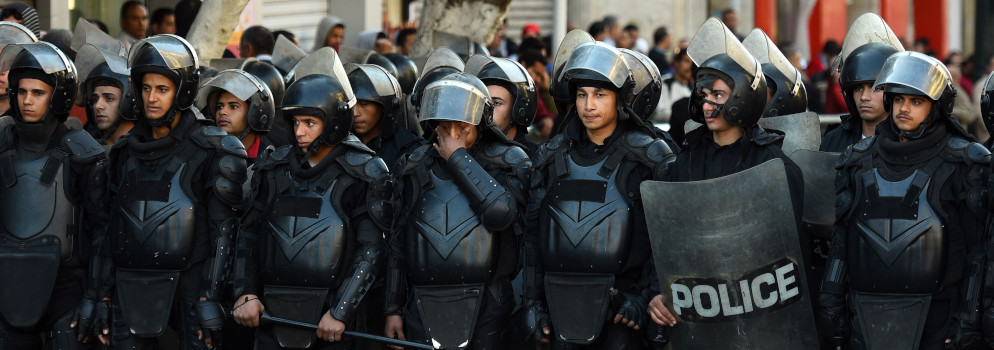In October, Egyptian President Abdel Fattah Al-Sisi announced that the country’s state of emergency would not be extended, hence lifted for the first time in more than four years, saying that the country had become an “oasis of security and stability in the region.”
The country-wide state of emergency had effectively been in place nationwide since two church bombings in April 2017; a separate state of emergency had been in place in North Sinai in the years leading up to that.
The development represents a step that both international and domestic civil society organizations had been calling for—Human Rights Watch called the decision “positive, but far from sufficient to begin to quell the country’s prolonged human rights crisis,” while the Egyptian Initiative for Personal Rights (EIPR) also recognized the “step in the right direction, although…deficient alone in dismantling the arsenal of repressive legislation issued in recent years.”
What is a “state of emergency” in Egypt?
Under Egyptian law, the state of emergency is governed by the emergency law, which has been amended a number of times since it was issued in 1958. The law establishes expanded powers for the executive and security services, while rolling back judicial oversight during a state of emergency. These measures come with a litany of government powers including but not limited to authority to suspend free expression, assembly, and movement. Emergency measures center a large amount of authority in the hands of the president, who is granted the power to surveil communications, to seize and suspend published material, and to block certain websites. Most notably, emergency law puts emergency state security courts in place to facilitate speedy prosecutions that cannot be appealed and whose rulings can be changed, canceled, or retried by presidential decision.
It is not uncommon for countries to invoke emergency laws under exceptional circumstances, but such ostensibly exceptional circumstances have become the norm in Egypt, where citizens lived under a state of emergency starting from President Anwar al-Sadat’s assassination in 1981 until the last renewal, issued under President Hosni Mubarak, expired in 2012.
While renewals to the state of emergency were often issued for multiple years under Mubarak, there were attempts to limit such extended periods in post-2011 constitutions. Article 154 of the active 2014 Constitution places a three-month limit on a state of emergency, with the option for a single three-month renewal.
However, in practice, President Sisi, for more than four years, managed to keep the state of emergency in effect through a workaround—by declaring a new state of emergency immediately after a renewal expired. Through a rubber stamp parliamentary body that would routinely provide the votes needed for such declarations (and the supermajorities required for renewals), Egypt’s state of emergency was sustained through three-month increments for years.
What does lifting the state of emergency mean, legally and in practice?
While the state of emergency is no longer in place in Egypt, the practical considerations surrounding some of the fallout are unclear. According to the law, emergency state security courts continue hearing ongoing cases, while new cases are referred to the common court system. As EIPR points out, this means that a number of active cases will continue to be heard by these exceptional courts and be faced with the same concerns and vulnerabilities that come with it.
A number of notable cases will continue to be heard in emergency state security courts. On November 1—one week after the state of emergency was suspended—the trials of activist Alaa Abdel Fattah, human rights lawyer Mohamed El-Baqer, and blogger Mohamed Oxygen, who are facing false news charges, resumed. The court is expected to issue a sentence on December 20. Emergency courts continue overseeing other false news trials with defendants remaining in pretrial detention—these include academic Patrick George Zaki, former parliamentarian Zyed el-Elaimy, and journalists Hossam Mounis and Mostafa Fouad. In June, graduate student Ahmed Samir Santawy was sentenced to four years in prison for “publishing false news from outside the country about internal affairs.”
In EIPR’s press statement following the end of the state of emergency, the organization highlighted that recent legislation has “legitimized most of the powers of the emergency law and permanently integrated them into criminal laws,” meaning that certain measures meant to be invoked exceptionally have now made it into everyday legislation.
For example, the Protest Law, passed in 2013 and amended in 2017, represents a piece of legislation that endows the state with emergency-like powers during normal periods. The law puts immense restrictions on public assembly using vague language while authorizing security forces to employ a wide range of force against protesters participating in unauthorized protests.
The 2015 Counter-terrorism Law represents another one of these “legislative redundancies,” which—among other features—established the creation of a specialized circuit to try all terrorism cases and endows the prosecution with significantly expansive powers. The law also allows the president to evacuate areas and establish curfews in areas deemed to be facing terrorism. Just one week after the state of emergency was lifted, the country’s House of Representatives approved new amendments to a series of laws that threaten to continue military trials of civilians and entrench greater powers for the armed forces, among other things.
From a policy standpoint, Egypt’s state of emergency is simply one in an array of tools at the state’s disposal. Earlier this year, five Egyptian civil society organizations presented and endorsed “Seven Steps” meant to “stop the unprecedented erosion of human rights that Egypt has witnessed over the past years.” While an end to the state of emergency is one of the seven recommendations, there has been no progress—and in some cases continued backsliding—when it comes to the other six.
